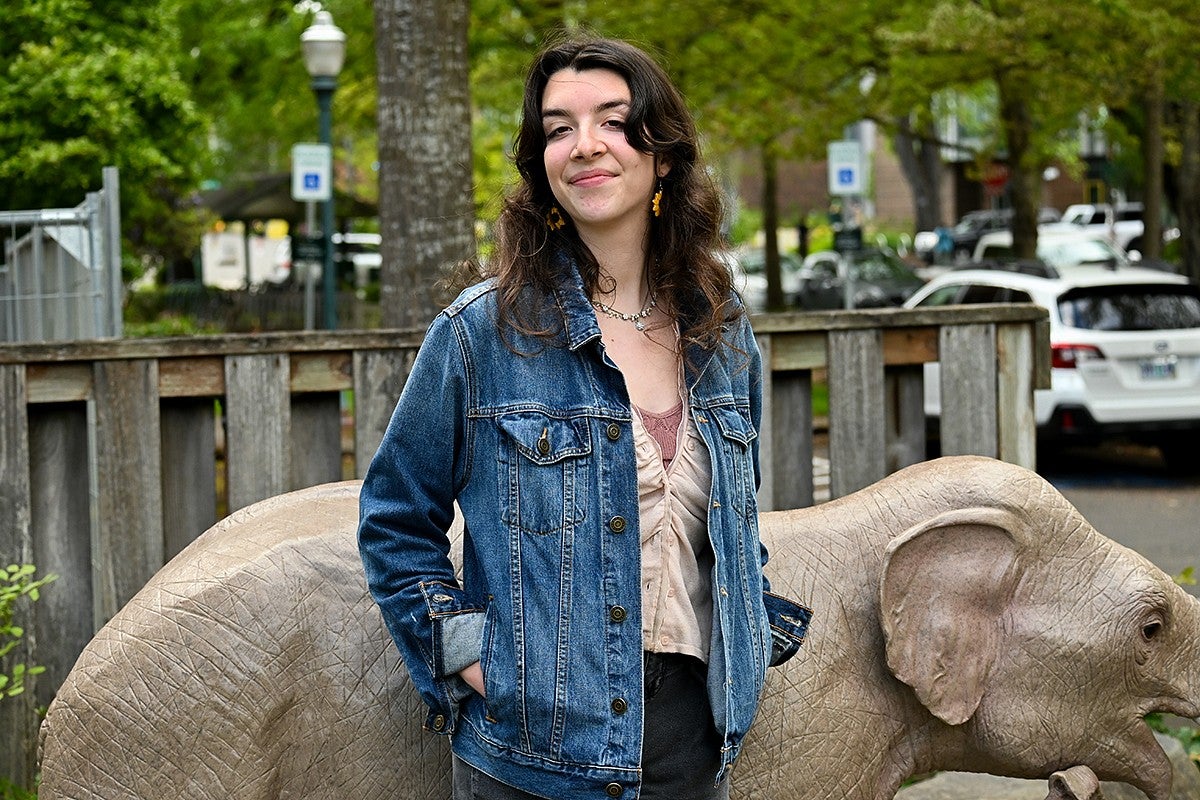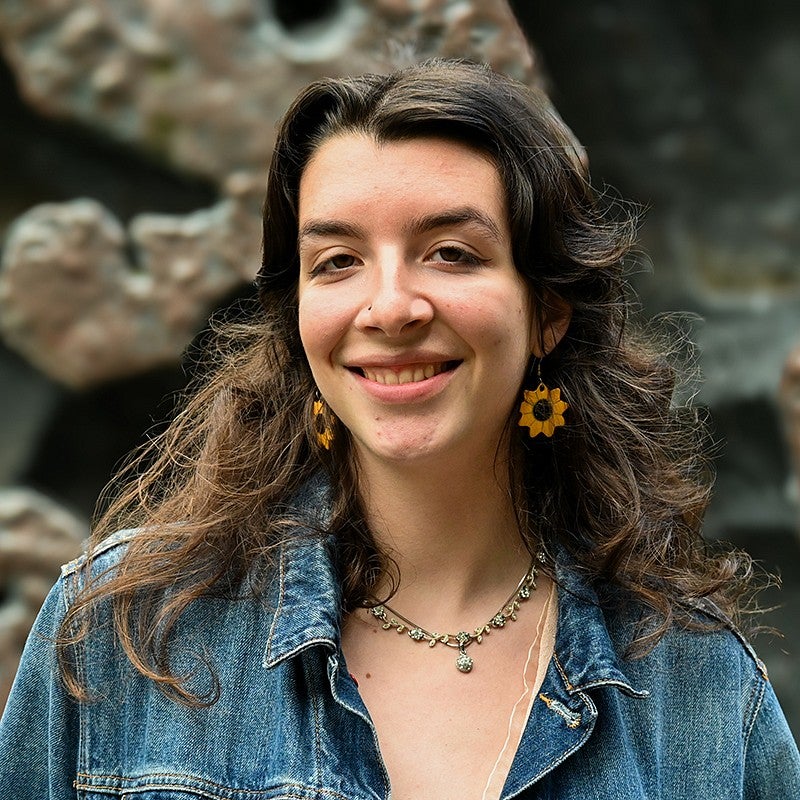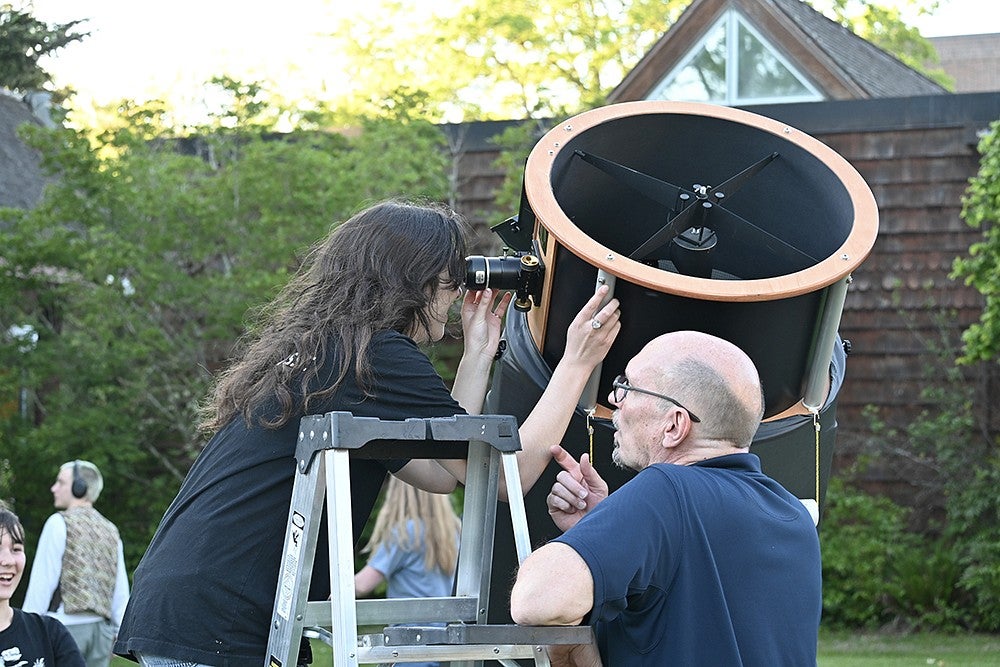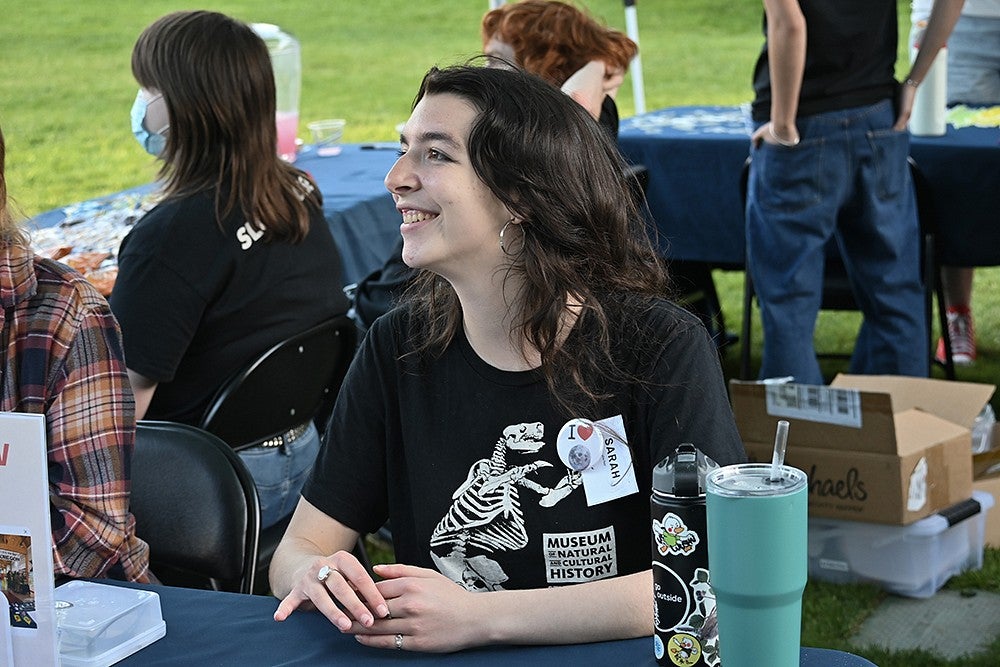
Learn from the past, look to the future
When Sarah Wittmann was young, her mom gave her a book that she had loved as a kid—“From the Mixed-Up Files of Mrs. Basil E. Frankweiler.” It was a story about two young siblings who ran away from home to live in the Metropolitan Museum of Art in New York City.
For Wittmann’s mom, who had grown up in the city, the book was nostalgic of her childhood. But for Wittmann, it would mean much more.
When she was able to see “the Met” for herself, Wittmann remembers running straight to Marie Antoinette’s bed “because that’s where the two children slept in the museum” in the book.
She dropped a coin in the fountain, remembering how the children would scavenge coins from the water “and use them at the cafe to get food.”

Sarah Wittmann
Major: History
Minor: Nonprofit administration
Thesis: “The PSU Student Strike: A Legacy of Collaboration and Nonviolent Protest”
Advice to incoming first-year students: Be open-minded. Take classes that you’re excited about or that sound interesting, let yourself be challenged, and look for cool new opportunities.
Favorite study spot: I’m such a Knight Library girl. I go to the fourth floor and I can be there for hours.
Advice on the thesis project: Pick something that genuinely interests you. Also, be kind to yourself and just do your best.
What got you through college: Celsius energy drinks and going on walks.
This summer, I can’t wait for: Hanging out with my friends. We’re staying in Eugene for one last summer together.
What I’ll miss most about the CHC/UO: The beautiful campus and the amazing support and resources from CHC faculty.
I’m grateful for: Such a supportive community. Academically, in the CHC, with my friends, and with my family, I’m so lucky.
Where I’m headed next: Maybe teaching abroad in Austria or being an au pair somewhere abroad, maybe trying to work with kids in a museum setting, maybe trying to go into the public history field. I have no idea right now, but I have a lot of exciting ideas and possibilities.
For a young Wittmann, the book and the museum instilled a sense of wonder in her. She didn’t know it yet, but they would inspire her to be curious about history and approach it with her inner child in mind for years to come.
Now, Wittmann is graduating from the Clark Honors College with a major in history and a minor in nonprofit administration. She isn’t sure what’s in store for her, but her childhood memories and experiences at the UO and the CHC have helped her realize passions for making history immersive and relatable, especially for young wonderers like herself.
It took a while for Wittmann to realize that history was the place for her, but without knowing it, she says, “I grew up into it.”
Making history a place for wonder
Wittmann was raised in Seattle with her parents and two younger siblings. Her parents were “super big history nerds,” she says. As a kid, her family sat around the dinner table talking about “anything and everything” history, sometimes gathering around the TV to watch historical movies and documentaries.
When the Seattle Public Library handed out free passes to museums in the area, Wittmann and her family were first in line to get them.
She remembers being enthralled by exhibits about nature and culture. The then-six-year-old Wittmann was in awe of the fake volcano at the Burke Museum of Natural History and Culture. She sat with her jaw nearly on the floor, engaging in the interactive exhibits at Seattle Children’s Museum.

For Wittmann, the museums allowed her to “relate to people in the past.” There was something about seeing the way people her age used to live that attracted her attention. It also sparked her passion for reading.
“I was that kid who got a library card, would check out the limit of library books and come back a week later and have read all of them,” she remembers. “I got in trouble a couple times at school because I was reading when I was supposed to be listening to the teacher.”
Some of Wittmann’s favorite books in middle school were from the historical fiction section. Just as museums had when she was a kid, reading narratives set in the past made her feel closer to history.
Creating place in the past
In high school, Wittmann was good at history, but it wasn’t until she took AP U.S. History that she realized studying it may be an option. During the unit on Watergate and the administration of President Nixon, Wittmann says she was “floored” by the way it changed the American population’s trust in the government, and especially how it related to the current political divisiveness.
When Wittmann came to the University of Oregon, she wasn’t sure she wanted to pursue history until she took a class by chance, and it changed her college path completely.
“I registered for classes super late before my fall term freshman year, and I was just going through classes,” she remembers. “I was like, this one doesn’t sound very interesting, but there’s a spot. I guess I’ll sign up.”
The class ended up being Assistant Professor Steve Beda’s HIST 203 class, “American Century.” Through the monotony of the pandemic and asynchronous classes, Wittmann was “really surprised at how excited I was about the lectures. I would look forward to (them).”
When Wittmann took Beda’s “HIST 388: Vietnam War and the United States,” she was inspired all over again. “I was just fascinated by everything I was learning,” she says. “I was like, ‘I just have to keep taking classes like this.”
Beda remembers Wittmann as a student who “raised the level of conversation” in the classroom. “She set a model for what good, rigorous history looks like,” he says. “If all the students could be like Sarah, my job would be a lot easier.”
While writing a paper for Beda’s class, Wittmann interviewed someone who was a part of the anti-war movement at Portland State University, and she was fascinated by their story. It inspired her to continue researching the uniquely non-violent protesting methods at the university. She decided it would become her thesis topic—“The PSU Student Strike: A Legacy of Collaboration and Nonviolent Protest”—and she won the CHC’s Social Sciences Thesis Award for it.

Through the process, Beda says he “learned so much from Sarah” and admired her “unbelievable work ethic.” Working with Wittmann, he says, was like working with a grad student. “It was 99.9 percent Sarah and 0.1 percent me,” he recalls.
In the summer after her sophomore and junior year, Wittmann worked as a counselor for Duck Trails Camps, a day camp system that’s part of the UO Department of Physical Education and Recreation. In organizing projects and activities for the kids, Wittmann fell in love with the positive impact she could make on young children.
Waiting for the future
Initially, Wittmann was considering going into museum work after college so she could help create interactive exhibits and museum activities geared toward younger children. But now she’s leaning more in the direction of a post-graduation adventure.
Wittmann says she’s considering traveling the world before settling on a career. She applied to a teaching program in Austria and is considering being a nanny abroad. “Now’s the time to do it,” she says. “When is there going to be another time where I can just be like: ‘I’m going to live abroad for a year or two.’”
After that, she says she’ll see where she ends up. Maybe that will be museum work or working with kids.
Beda is encouraging her to work in history education. “Sarah reminds me why I got into teaching,” he says. “The historical profession would be better off if Sarah were a part of it.”

